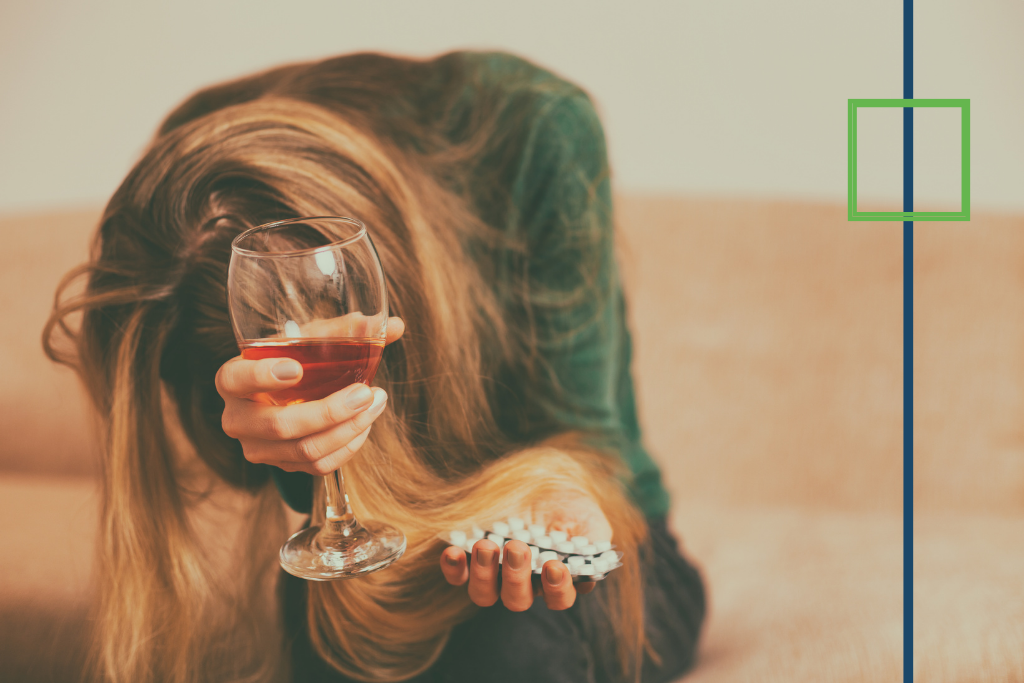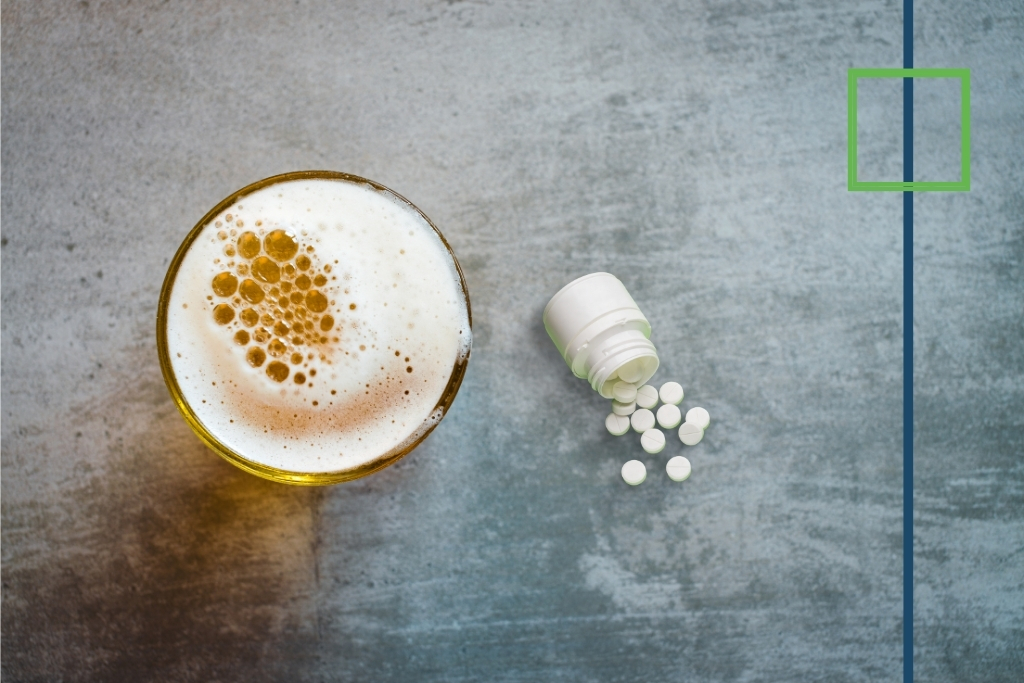What is Valium?
Valium (diazepam) is a prescription drug used for anxiety treatment, muscle spasms, alcohol withdrawal and as a sedative before surgery or to treat seizures. As a benzodiazepine medication, Valium suppresses excitability in the nervous system. It accomplishes this goal by affecting a brain chemical called gamma-aminobutyric acid (GABA), which binds to GABA receptors and regulates excitement [1]. Prolonged use of Valium, a central nervous system (CNS) depressant, leads to an increase in tolerance, causing a user to take more, which increases their chance of valium addiction, overdose, and withdrawal. Moreover, mixing prescription drugs and alcohol is dangerous because they can pose serious risks to the body. Someone with a history of alcoholism may be at risk of addiction to this drug.


Get Your Life Back
Find Hope & Recovery. Get Safe Comfortable Detox, Addiction Rehab & Mental Health Dual Diagnosis High-Quality Care at the We Level Up Treatment Centers Network.
Hotline (877) 378-4154What is Alcohol?
Alcohol is a psychoactive drug with dependence-producing properties that has been widely used in many cultures for centuries. The physical effects of alcohol can also cause damage to other people, such as family members, friends, co-workers, and strangers. Alcohol consumption is a causal factor in more than 200 disease and injury conditions [2]. Drinking alcohol is associated with a risk of developing health problems such as mental and behavioral disorders, including alcohol dependence, alcohol liver damage, and diseases such as alcoholic hepatitis, liver cirrhosis, some cancers, and cardiovascular diseases, as well as injuries resulting from violence and road clashes and collisions.
Why Do People Mix Valium and Alcohol?
For the most part, people may not realize the danger of mixing Valium and alcohol. If you get anxious at social functions, you may instinctively take a Valium to help you get through the party. However, social engagements are also a typical setting for alcohol. Because it may take up to forty minutes for Valium to take effect, you may be able to get to a party and have a drink before you even begin to feel its effects. As a result, many individuals may take Valium and alcohol accidentally, not knowing the dangers.
However, some users combine the two substances to take advantage of specific effects. Valium can cause a feeling of deep relaxation or euphoria and individuals sometimes try to enhance those effects by combining alcohol. When mixed, Valium and alcohol may generate an enhanced buzz. Users describe the experience as more relaxing than an alcohol or benzo buzz on their own. However, it also may strengthen other side effects.
Effects of Mixing Valium and Alcohol
Because Valium works on the central nervous system (CNS) to calm overactive electrical impulses in the brain, it reacts poorly with depressants like alcohol, which can also suppress nervous system activity. When combined, alcohol can amplify the effects of Valium. While that may mean a better buzz or a mild high, it can also mean more extreme tranquilizing effects.
One of the most common side effects of benzodiazepines such as Valium is drowsiness. When users combine Valium and alcohol, this effect can amplify to the point of falling asleep or poor coordination. With high amounts of one or both in the combination, users may experience an alcohol blackout, a drug-induced state in which short and long-term memory creation is blocked. Other side effects include:
- Lack of coordination
- Dizziness
- Alcohol poisoning
- Loss of consciousness
- Shallow breathing
- Overdose
- Liver damage
Researchers have studied the loss of motor control and how it can affect your ability to drive. Even with small amounts of one or both substances, it made a difference. Separately, the small amounts of Valium and alcohol didn’t make a significant impact at all. However, when they were mixed, driving performance suffered noticeably. Users who would usually feel comfortable driving after taking Valium would be more likely to get into a crash if introducing alcohol into their system.
Benzodiazepines have a mild cardiovascular effect that can lead to hypotension in some users. However, when alcohol is also combined, it can lead to a “synergistic effect” on blood pressure, meaning that both Valium and alcohol work together to intensify the effect. In some cases, Valium can cause tachycardia or an abnormal heart rate.

Valium and Wine
Despite wine having a much lower alcohol content than spirits like tequila, vodka, or whisky, it’s still a depressant that can lead to devastating effects when combined. If you take diazepam and want to come home to a glass of wine, you should speak with your doctor first about your options. They’ll likely tell you to skip the wine and look for alternatives that don’t contain alcohol. As was mentioned above, drinking alcohol with a benzodiazepine, like diazepam can lead to respiratory depression or death.
Get Help. Get Better. Get Your Life Back.
Searching for Accredited Drug & Alcohol Rehab Centers Near You? Or Mental Health Support?
Even if you have failed previously, relapsed, or are in a difficult crisis, we stand ready to support you. Our trusted behavioral health specialists will not give up on you. Call us when you feel ready or want someone to speak to about therapy alternatives to change your life. Even if we cannot assist you, we will lead you wherever you can get support. There is no obligation. Call our hotline today.
FREE Addiction Hotline – Call 24/7Effects of Valium and Alcohol on the Brain
Valium acts on the central nervous system ( brain and spinal cord) to slow down excessive electrical impulses in the brain. This sedating effect can help to prevent seizures, abnormal body movements, and muscle spasms. It can also have a quieting effect on the user’s emotions and mood or make the user feel drowsy.
Valium is often prescribed to help people with insomnia or anxiety to help them relax and fall asleep. However, people who abuse Valium take the drug for its calming, soothing effects.
When taken by itself according to the directions of a doctor or therapist, Valium is a relatively safe drug, with a low risk of harmful side effects. But the dangers of this drug increase significantly when this medication is taken simultaneously with other substances, like alcohol. In particular, the following substances mixed with Valium pose a high risk of overdose, loss of consciousness, coma, and death:
- Alcoholic beverages
- Opioid pain medications, such as prescription drugs that contain hydrocodone (Vicodin, Norco), oxycodone (Percocet, OxyContin), hydromorphone (Dilaudid), and other narcotics
- Illicit opiate drugs, like heroin
- Other tranquilizers or sedatives, such as alprazolam (Xanax) or lorazepam (Ativan)
- Sleep medications such as zolpidem (Ambien)
- Barbiturates like secobarbital (Seconal) or phenobarbital (Nembutal)
- Cocaine
- Methamphetamine (meth)
Many of these substances have depressant actions, slowing various physiological processes and suppressing activity in the brain. Combining these drugs with Valium can boost the effects of this tranquilizer, making the user even more vulnerable to the dangers of central nervous system depression.
The use of Valium with stimulants like methamphetamine and cocaine can also endanger the user’s health and safety. Abusing multiple drugs increases the risk of dangerous drug interactions, overdose, addiction, accidents, and fatalities.
The use of Valium with alcohol, opiate drugs, or other prescription medications is not always deliberate. Some individuals with legitimate prescriptions for Valium may consume alcohol or take other medications that interact with this drug without being aware of the possible dangers. The National Institute on Alcohol Abuse and Alcoholism (NIAAA) [3] cautions that depressants can increase the sedative effects of alcohol, making the user even more sleepy, disoriented, and vulnerable to accidents or injuries. Valium users should read medication labels carefully and avoid alcohol while taking this drug.
Comfortable Facilities & Amenities
High-Quality Addiction & Mental Health Rehabilitation Treatment
Rehab Centers TourRenowned Addiction Centers. Serene Private Facilities. Inpatient rehab programs vary.
Addiction Helpline (877) 378-4154Proven recovery success experience, backed by a Team w/ History of:
15+
Years of Unified Experience
100s
5-Star Reviews Across Our Centers
10K
Recovery Success Stories Across Our Network
- Low Patient to Therapist Ratio
- Onsite Medical Detox Center
- Comprehensive Dual-Diagnosis Treatment
- Complimentary Family & Alumni Programs
- Coaching, Recovery & Personal Development Events
Effects Valium and Alcohol on the Body
Drinking alcohol while you’re taking Valium can increase your risk of experiencing a depressant overdose. Even if you’ve only taken relatively small doses of each individual drug, potentiation can cause you to experience overdose symptoms. A depressant overdose can cause nausea, sedation, and vomiting, but it can also cause some potentially life-threatening symptoms. Depressant Overdose symptoms may include:
- Heavy sedation
- Loss of consciousness
- Confusion
- Heavy intoxication
- Loss of motor control
- Memory impairment
- Nausea and vomiting
- Changes in vision
- Slowed breathing
- Bluish coloration in lips and fingertips
- Oxygen deprivation
- Coma

One of the most dangerous symptoms of a depressant overdose is respiratory depression. Respiratory depression is when your breathing is slowed to a dangerous degree. Depressants like Valium and alcohol can slow down your breathing by slowing nervous system activity relating to important automatic functions in your body. Slowed or stopped breathing can happen during heavy sedation or unconsciousness without you realizing it. During a fatal depressant overdose, respiratory depression is often the cause of death.
Another potentially dangerous complication is the aspiration of vomit. Since alcohol and Valium overdose can cause nausea and a loss of consciousness, you may be at risk of vomiting while you’re asleep and aspirating it. This can be similar to drowning. If someone is with you when this happens, they may be able to intervene by helping you to sit up or roll to your side.
Valium and alcohol misuse is likely to cause some acute, short-term effects, but mixing them may also cause some dangerous long-term effects. Misusing both of these drugs can affect multiple areas of your body, leading to long-lasting health problems.
Both drugs can affect your heart rate. Alcohol misuse can contribute to high blood pressure, strokes, and heart disease. Depressants manipulate some parts of the brain that are related to automatic functions like heart rate and blood pressure. Alcohol and benzodiazepine misuse can cause long-term issues with these important functions.
Alcohol misuse is known to be hard on your liver. Long-term alcoholism can lead to liver disease and dysfunction. However, Valium may also damage your liver if it’s used for a long time, especially if it’s misused in high doses. The FDA warns that liver function tests should be used to monitor your liver during the long-term use of Valium. If you use both of these drugs at the same time, it could cause liver disease to develop more quickly.
World-class, Accredited, 5-Star Reviewed, Effective Addiction & Mental Health Programs. Complete Behavioral Health Inpatient Rehab, Detox plus Co-occuring Disorders Therapy.
CALL (877) 378-4154End the Addiction Pain. End the Emotional Rollercoaster. Get Your Life Back. Start Drug, Alcohol & Dual Diagnosis Mental Health Treatment Now. Get Free No-obligation Guidance by Substance Abuse Specialists Who Understand Addiction & Mental Health Recovery & Know How to Help.
Valium and Alcohol Side Effects
Using too much of any substance can cause mental and physical harm to your body. Mixing Valium and alcohol—which are both depressants—can lead to the following side effects:
- Extreme drowsiness
- Extreme dizziness and confusion
- Blood poisoning
- Loss of balance that can lead to falls
- Loss of control over bodily functions
- Nausea and vomiting
- Slowed breathing
- Slowed heart rate
- Brain damage
- Coma
- Overdose
There are factors that put you at higher risk for overdosing when mixing Valium and alcohol. If you are taking prescription medications other than Valium, Valium and alcohol could also interact with that medication. If you consume too much alcohol or Valium too fast, your organs may not process them, leading to an overdose.
Psychological distress and personal stressors—such as relationship problems—may also play a role. Combining or intentionally misusing Valium and alcohol can be potentially life-threatening.
Treatment for Polysubstance Abuse
Choosing to mix Valium and alcohol can cause accidental fatalities in a number of ways. Helping someone understand the dangers associated with polysubstance abuse may require a substance abuse treatment program.
Polysubstance abuse treatment often offers medically-assisted detox as part of the inpatient treatment program. The symptoms of alcohol withdrawal can be life-threatening. It is important to have medical advice and professionals available to navigate the detox process.
If someone is addicted to Valium and alcohol, either as separate or combined substances, that person needs to consider inpatient detox. If you or a loved one is struggling with Valium addiction, We Level Up NJ addiction specialists are standing by to help.

Experience Transformative Recovery at the We Level Up Treatment Center.
See our authentic success stories. Get inspired. Get the help you deserve.



Start a New Life
Begin with a free call to an addiction & behavioral health treatment advisor. Learn more about our dual-diagnosis programs. The We Level Up treatment center network delivers various recovery programs at each treatment facility. Call to learn more.
- Personalized Care
- Caring Accountable Staff
- Comfortable Amenities
- Licensed & Accredited
- Renowned w/ 5-Star Reviews